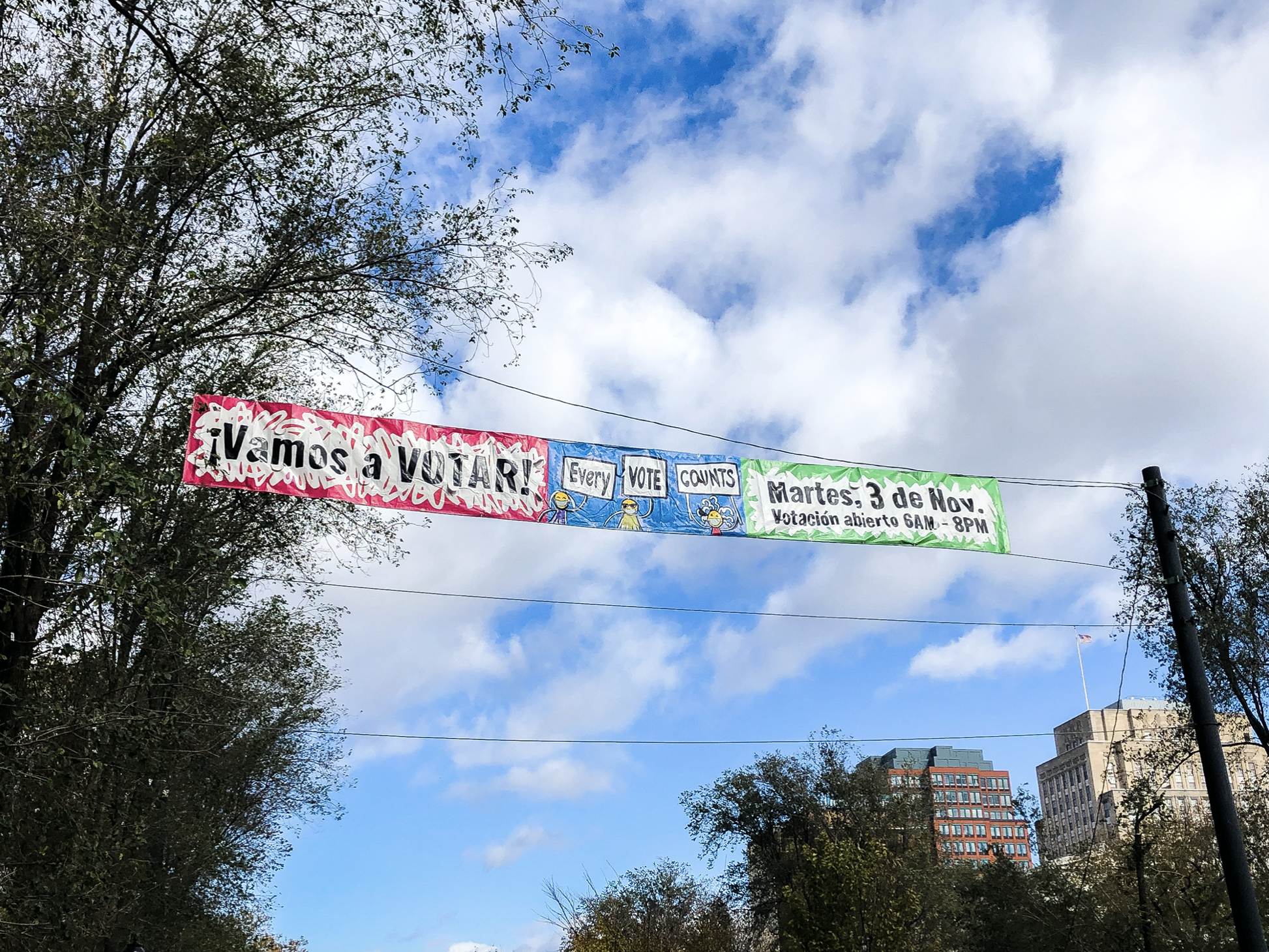
Jessie Cheung, Contributing Photographer
As Election Day draws near, many Elm City organizers and community members have found a rallying cry: “Vote against hate.”
Leaders of New Haven’s Latinx community are expecting and hoping for a large turnout, due in great part to the divisive political climate surrounding this year’s election. The 2020 election will decide the fate of President Donald Trump, a leader whose policies have proven especially decisive and impactful for the country’s Latinx population — which makes up almost 18.5 percent of the country’s population and 30 percent of New Haven’s population. Besides the presidential election, local leaders and residents told the News they look to use their vote in the coming election as a means to increase Latinx representation in local government, amplify the voice of their community and fulfill their civic duty.
“Even if immigrants are not able to vote, they can talk to and mobilize their neighbors and friends to go vote this week,” John Jairo Lugo — co-founder and organizer of Unidad Latina en Acción, or ULA — told the News in a phone interview in Spanish, as translated by the News. “New Haven actually has multiple generations of Latino immigrants and those immigrants have children who have been born here and those younger generations need to go out to vote.”
Jairo has helped mobilize members of the community through ULA’s Día de Muertos parades this weekend and speaking engagements with La Voz Hispana de Connecticut’s radio station.
Jairo described ULA’s decision to use the Día de Muertos events, spaced out over the past Sunday and Monday, to “honor the dead and victims of COVID-19, fight for the living and spread the message of ‘voting against hate.’” He said that both candidates are “very bad,” but that he and many ULA members believe that a president must be “candid.” He added that “we cannot continue with the language of hatred of Donald Trump.”
Jairo says that members of ULA have sought to demonstrate the active political nature of the city’s Latinx community by going “out on the streets, on the radio and collaborating together on events like Día de Muertos.” After Election Day, he also expects that members will take to the streets “to send a message that we are interested in the future of our community.”
ULA members have also phone banked for the National Domestic Workers Alliance, urging voters in swing states “to make a good decision about their candidate.” Jairo said he is concerned about the large Latinx religious community that belongs to churches that “often take the side of Trump.” Jairo said that while these pastors often advocate for Trump, appealing to conservative values within certain segments of the Latinx community — such as “God and family” — many are not undocumented nor immigrants. He said this means they don’t have to face the consequences of the current administration’s anti-immigrant agenda.
“To be an immigrant and to favor Trump is to be on the wrong side of history,” he said.
Herman Zúñiga, community member and president of the now-defunct Immigrant Community of East Haven, told the News he was motivated to organize for the coming election because of negative experiences he has had in the United States and his perceived responsibility to vote for his community. Zúñiga has been outspoken in the past about immigrants’ rights.
Zúñiga works as a handyman and has more recently become involved in community activism efforts. He immigrated to Connecticut in 1991 and began working in a restaurant. There, he saw how Latinos worked arduous shifts in the agriculture and food industries. He determined that these industries — which subjected “pregnant women to heavy-lifting” of supplies — were “hostile environments” for Latinx workers.
“There are two faces to the U.S.,” Zúñiga said in a phone interview. “There is the administration, whose politics is saying that you can’t enter illegally, and then there are [the undocumented people in this country] who already came and who need help adapting and resettling.”
He told the News that undocumented people who are here in the United States need assistance, and he said that “even if you are pregnant and undocumented, you have rights.” Through organizations like ULA and JUNTA, he believes “what is good” can be preserved and “what is bad” can be changed.
Change can also come at the ballot box, said Sarahi Zacatelco, a local business owner and artist. The Latinx community has often gone unheard, she said, and this year’s election is an opportunity to change that.
“We have to vote … some Latinos have been disappointed by the lack of help to the community and they didn’t know how to vote in the past,” Zacatelco said. “Now is their moment to do it, we Latinos in New Haven, Connecticut are surging economically. We know that if the young people don’t go out to vote, they will suffer the consequences of not being heard in schools and universities.”
To Zacatelco, the vote is a mechanism to attain representation in local government and act upon the rights of her people.
Hazel Mencos, a volunteer with Semilla Collective — a local nonprofit whose work targets the city’s immigrant community — said that while some people are not eligible to vote, the organization has encouraged its many voter-eligible members to exercise their right at the ballot box.
“They know what is happening with this administration, so I think we are in a good place,” she said.
ULA was founded in 2002 with a mission to “build power, voice, and dignity for immigrant workers and families.”
Larissa Jimenez | larissa.jimenez@yale.edu






